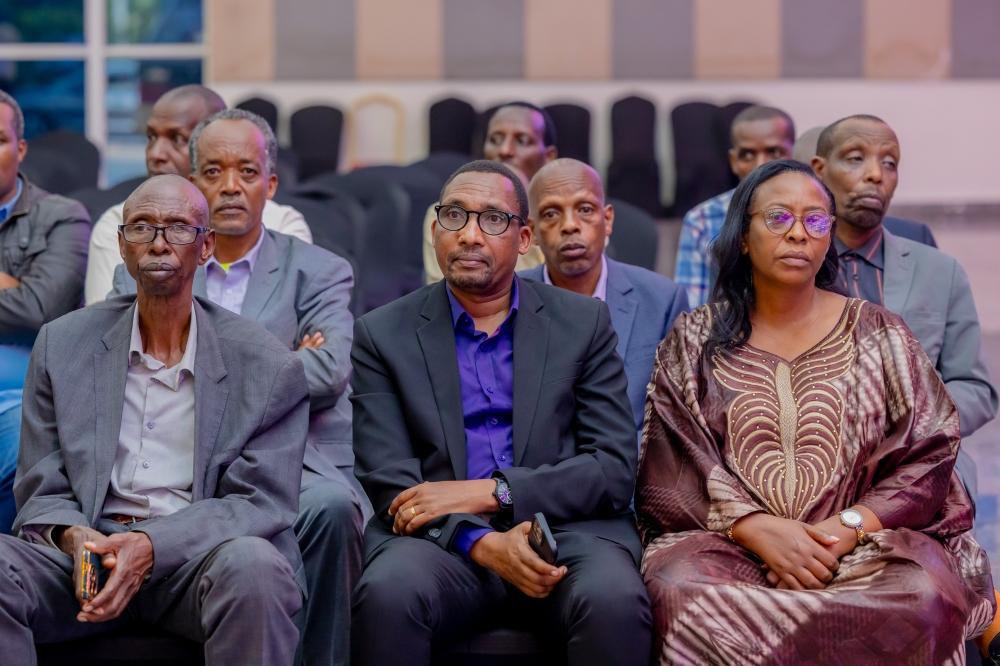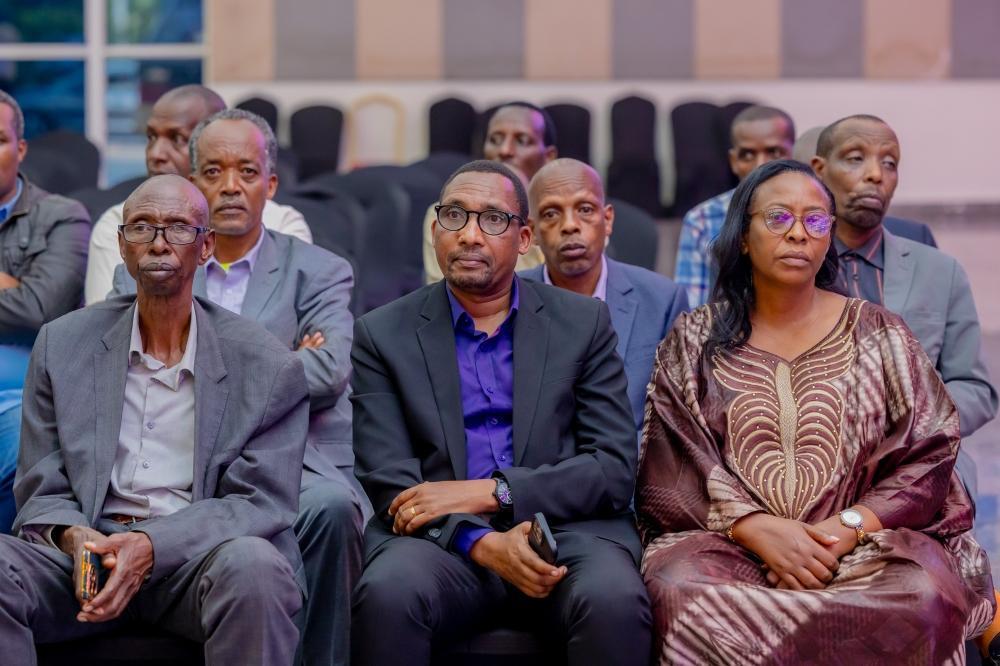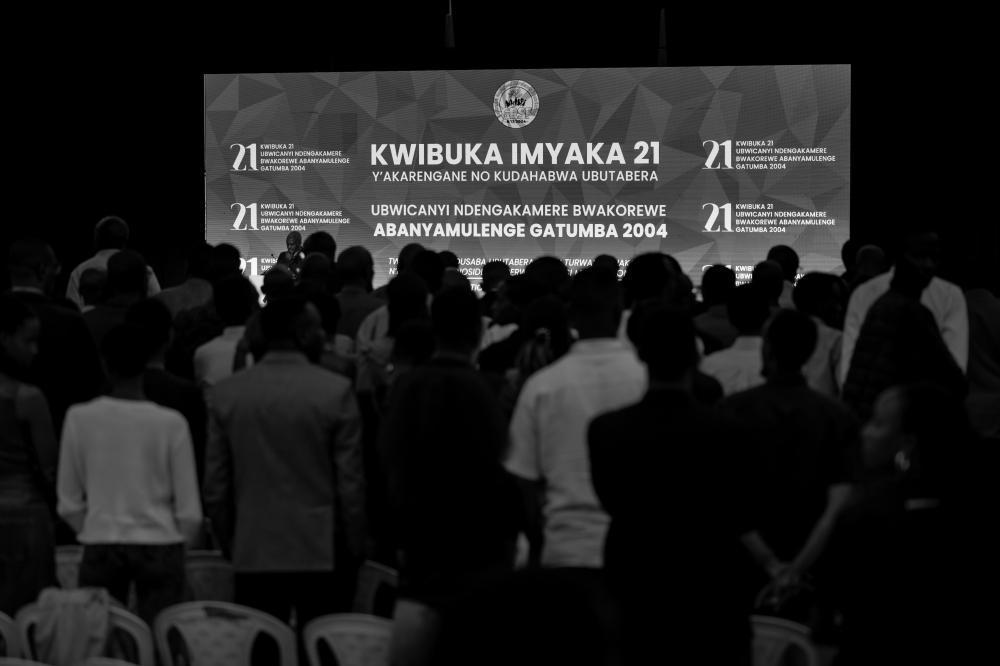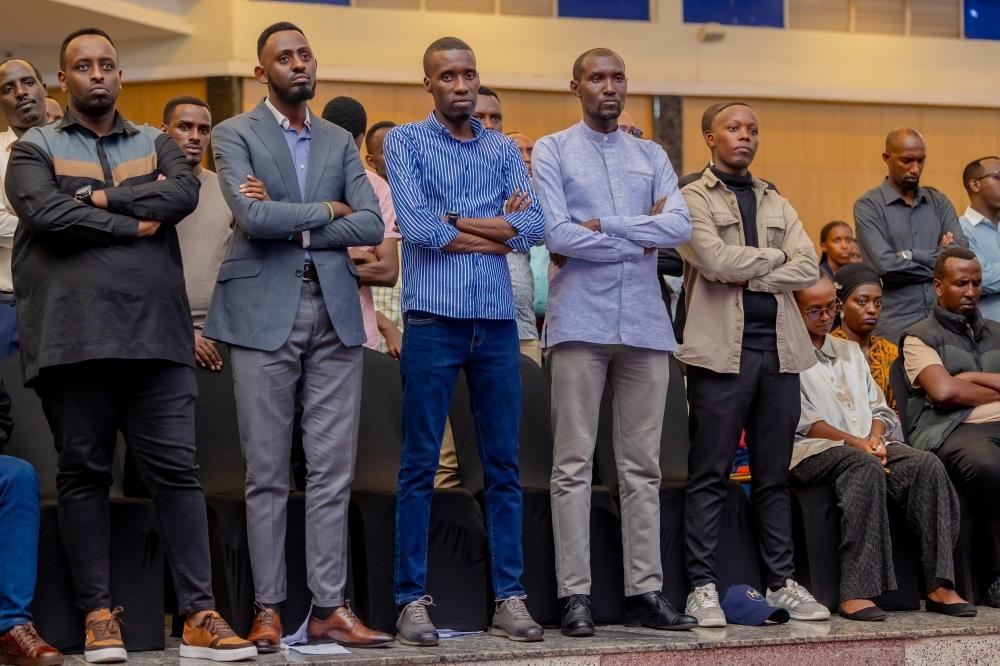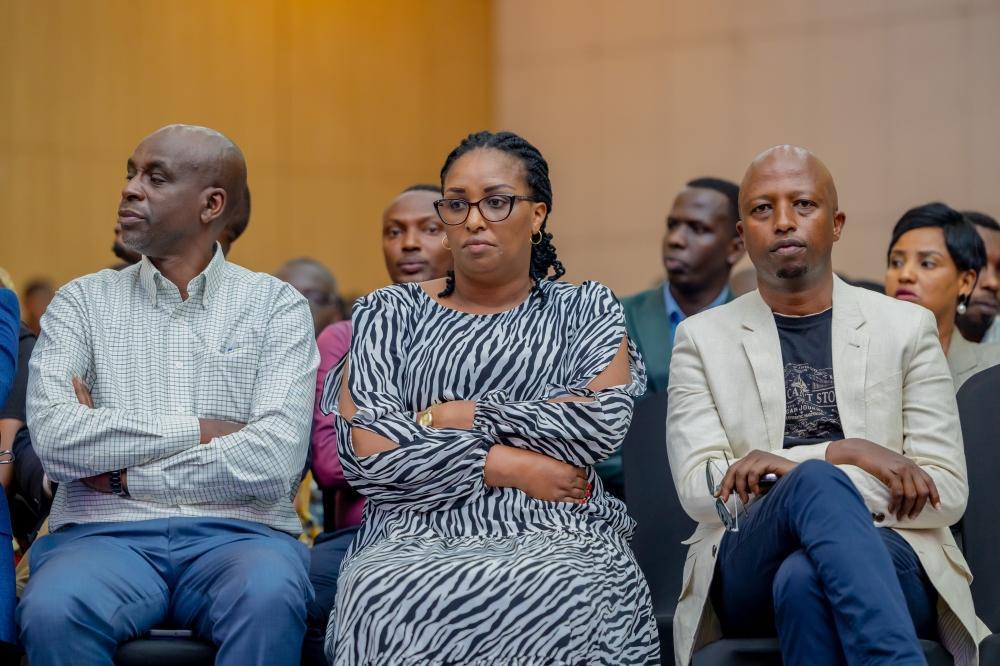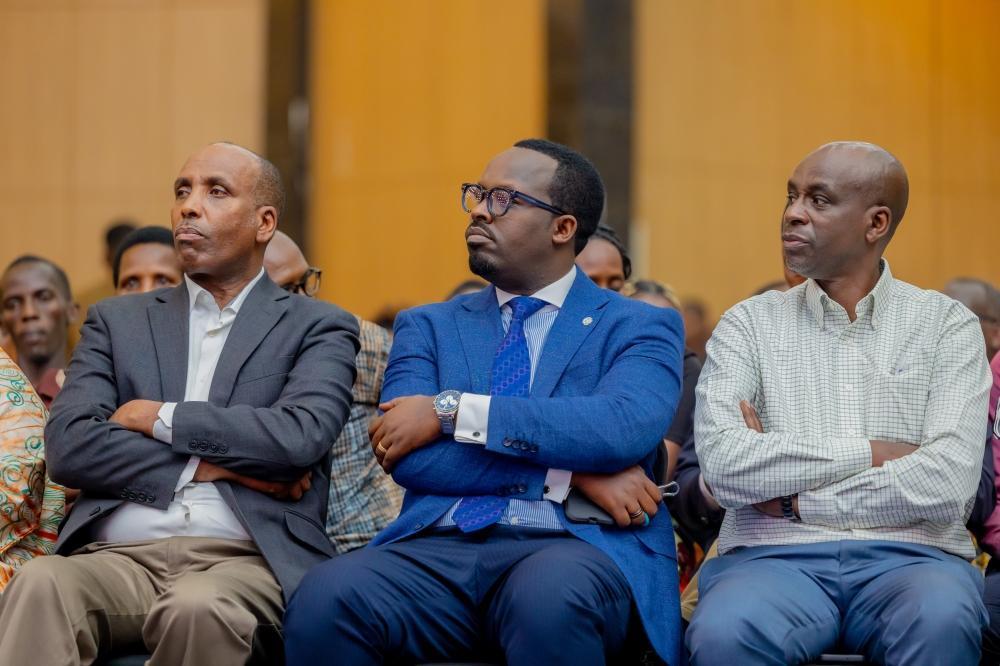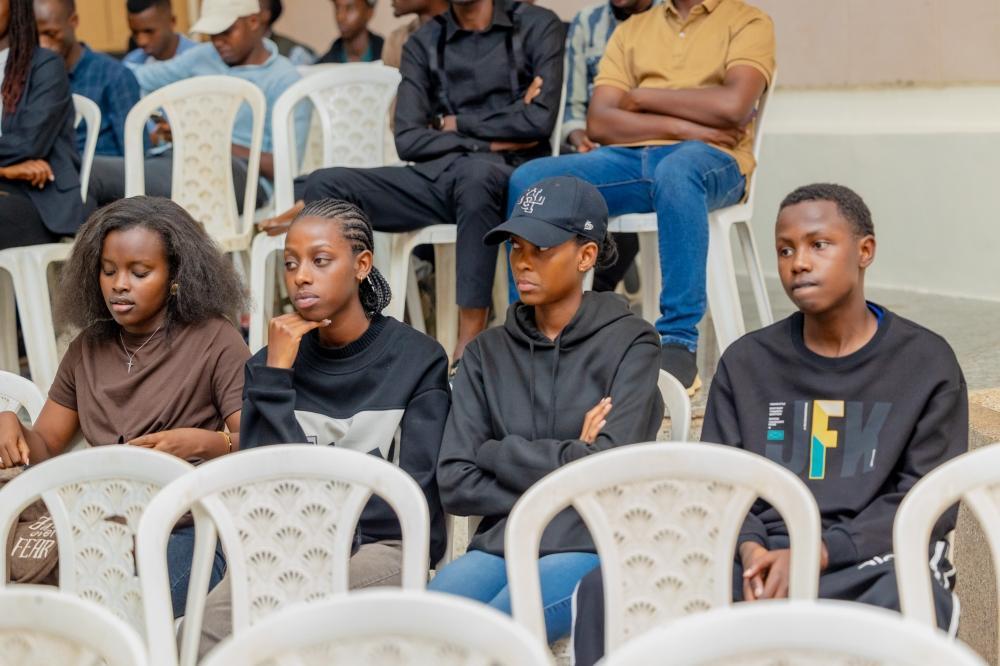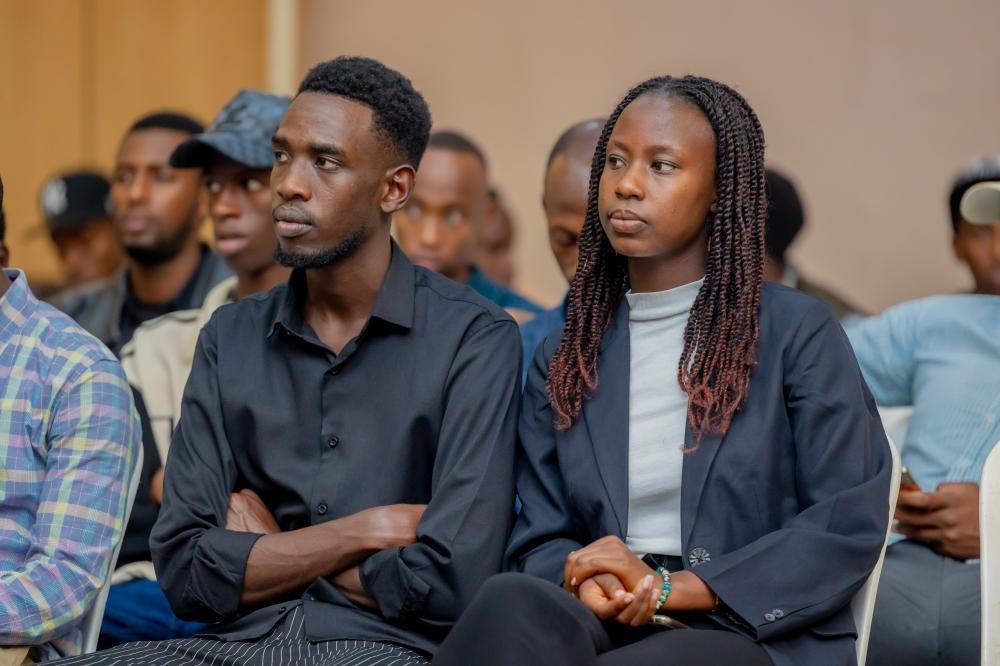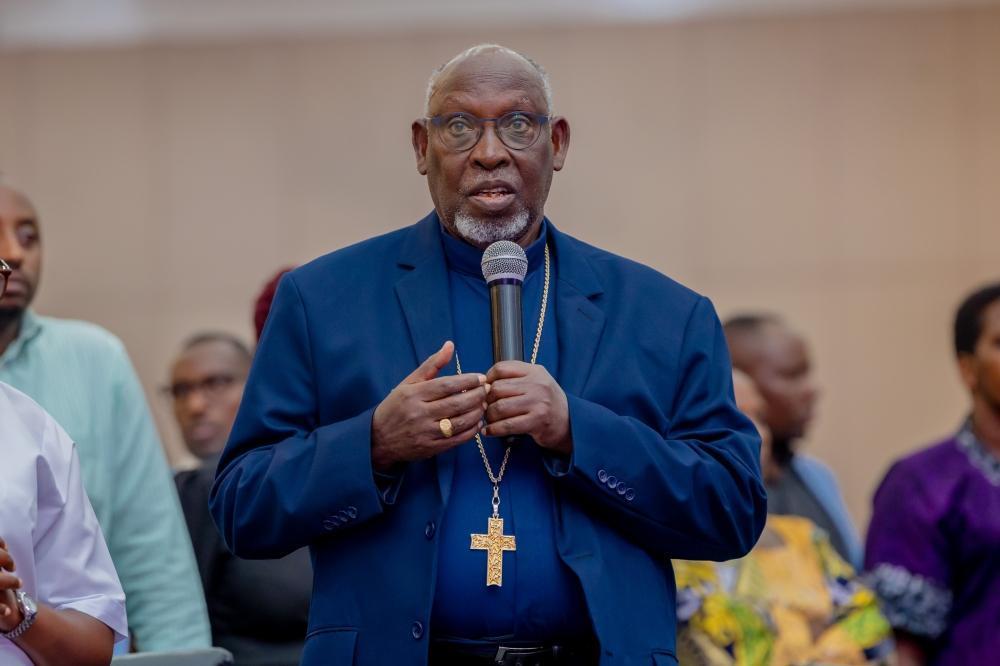Africa-Press – Rwanda. Twenty-one years later, Esperance Nyiramukunzi still clings to hope for life, but less for justice. She was only 11 years old when her mother was shot dead during the infamous Gatumba massacre in which 166 Congolese Banyamulenge were killed in a refugee camp in western Burundi on the night of August 13, 2004.
Nyiramukunzi recalls that it had been a normal evening at the family’s camp shelter. All seven of her siblings were there, joined by a visiting friend of her father’s. Her aunt was out in the neighborhood, and another guest was seated with them after dinner, a simple meal of cassava and beans, prepared by her mother and, to Nyiramukunzi, as delicious as a mother’s meal could be.
They were chatting quietly when her aunt returned, visibly uneasy.
Members of Banyamulenge community in Rwanda during the commemoration of Gatumba massacre in 2004, at Dove Hotel in Kigali on Wednesday, August 13. Courtesy Courtesy
“She told us she had heard people in the bush near the camp whispering things she could not make out,” recollected Nyiramukunzi, who attended an event on Wednesday, August 13 in Kigali, where hundreds of people marked 21 years after the killing.
“We all laughed and told her she was just scared. We talked a little more and then went to bed.”
Later, the first gunshots rang out. The children froze, straining to hear what was happening outside.
“The gunshots went on and on,” she said. “We heard women’s voices singing gospel songs amid the shooting. They were with the killers, mocking us, because they knew we were believers and often sang together.”
Nyiramukunzi’s mother urged the family to pray and repent. Before she could say another word, a bullet struck her. At first, no one realized she had been hit, they thought she had fallen silent to listen to the chaos outside.
Suddenly, her aunt sliced open the back of the tent, shouting for the children to run.
Nyiramukunzi bolted, stopping briefly at a nearby tent where a woman and her child were screaming. A shot tore into her leg, though she had not realized it immediately. When she tried to run again, the pain slowed her.
She was eventually taken to the hospital along with other wounded survivors later on. It was there she learnt about her mother’s death.
“I wanted to see my mother one last time before she was buried, but I never got the chance,” she said, “Still, I am grateful to have survived that night, to tell the story to those who do not know what really happened.”
Nyiramukunzi is one of many survivors who still yearn for justice, even as the years pass without accountability.
On August 13, 2004, armed attackers killed 166 Banyamulenge Tutsi civilians, mostly women and children, and injured as many more at the Gatumba refugee camp.
The victims had fled violence and persecution in South Kivu, DR Congo, seeking safety under the protection of the United Nations Refugee Agency.
Yet, 21 years on, no one has been held accountable. The international community recognized the massacre, and many perpetrators were identified, but they continue to live freely.
Survivors say the lack of justice, even with the UN’s recognition of the killing and global condemnation, leaves them restless and in despair.
To mark the 21st anniversary of the massacre, commemorative events were in Rwanda, eastern DR Congo, Kenya, and elsewhere. Mourners also called for accountability and action on ongoing ethnically motivated violence targeting Congolese Tutsi in eastern DR Congo.
‘Until we get justice’
Innocent Nteziryayo, one of the lawyers pursuing the case, says the biggest obstacle is the absence of political will to hold the perpetrators to account.
Speaking to reporters during the 21st commemoration in Kigali, Nteziryayo called the situation “a special case” because of the contradiction between recognition and inaction.
“Justice is a long way, but this case is special because despite the massacre being recognized, there is no political will to provide justice,” Nteziryayo said. “The massacre was known worldwide. Voices from across East Africa, the African Union, and beyond called on DR Congo and Burundi to act. But until now, there has been no real effort.”
With official avenues stalled, the Banyamulenge community has taken matters into its own hands to ensure justice is served.
“It’s been less than two years since we decided to stand for ourselves,” he explained. “My French colleague and I gathered evidence, testimonies, and reports. Last August, we submitted them to the EAC and AU courts, and also in Burundi and DR Congo, because reports indicate Congolese government soldiers were involved, as well as Rwanda, since Rwandan FDLR elements took part.”
They also contacted the International Criminal Court, though jurisdiction there is limited.
“For instance, Burundi holds most of the perpetrators,” he said. “But whenever we ask about the case, they say they will get back to us. The only meaningful feedback would be to see us summoned in court with the perpetrators to face the case.”
Asked if they would ever give up, Nteziryayo pointed to other genocide cases around the world, many still ongoing decades later, including trials related to the 1994 Genocide against the Tutsi in Rwanda.
“We will not stop until we get justice,” he vowed.
‘We must fight for ourselves’
Jules Rutebuka, who represents the Banyamulenge community in Rwanda, said their struggle is far from over.
“We commemorate Gatumba while the massacre is still ongoing in DR Congo and Burundi against Tutsi communities,” he said. “The persecution has forced the Banyamulenge to defend themselves, to fight for themselves without waiting for the international community. For eight years, chaos has continued, but we are not discouraged,” he said, referring to self-defence efforts mounted by Banyamulenge communities in eastern DR Congo.
He stressed that their calls for action have been ignored for years.
“The request has been there for years, but no action has been taken,” he said. “We wish our country, DR Congo, would take responsibility for its citizens.”
Addressing the mourners in Kigali, Rutebuka urged them to draw strength from Rwanda’s example.
“We should commemorate them, restore the dignity stolen from them when they were massacred. No one else will do it for us; it is only us who speak this language, who can bring justice to life.”
Rutebuka added that the international community had witnessed the massacre yet failed to act.
“In the Great Lakes region, East Africa, and globally, we have called for justice for a massacre that happened in their presence, but there has been no action.”
“We will not be given justice until we do it ourselves. We will not escape injustice and persecution until we act ourselves. Despite the silence of many and the large numbers behind our persecution, truth will prevail, but our role is limitless.”
For More News And Analysis About Rwanda Follow Africa-Press

